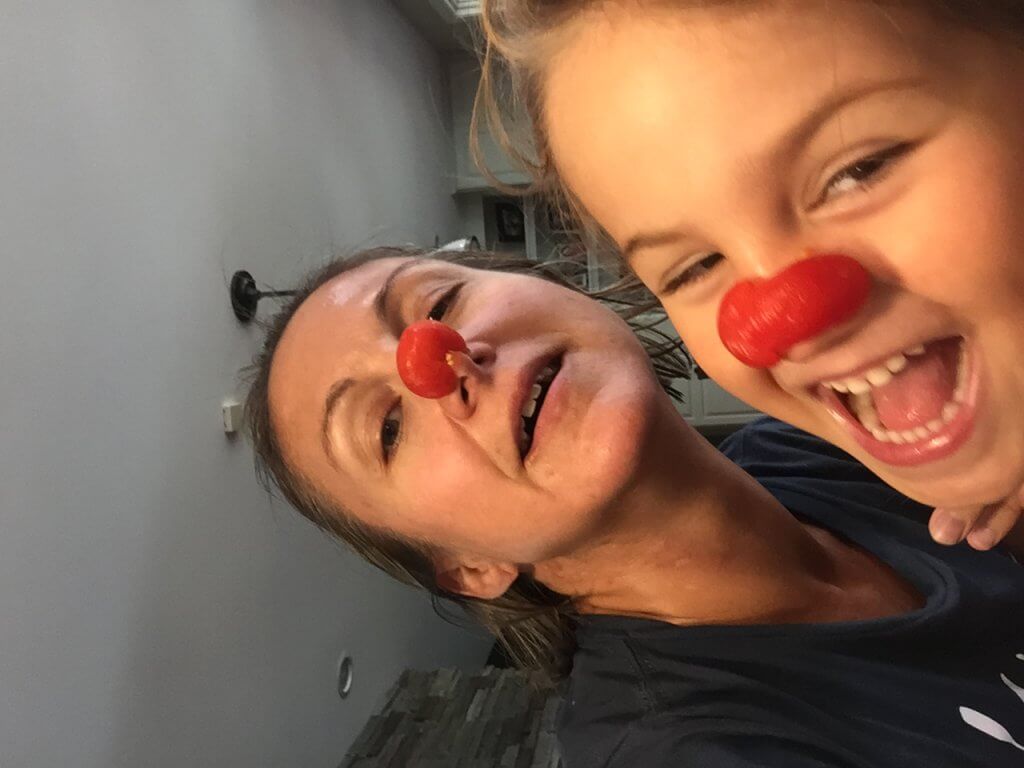
5 “Bad Parenting” Tips that May Improve Your Child’s Health
Parents are constantly under scrutiny (mostly their own). And let’s face it, we all let things slide once in a while. It may be a relief to
know that the following parenting “faux pas” may actually be good for your child’s health.
1. Not bathing for days
While this may yield unwanted side effects (i.e. odor), limiting showering and bathing helps to diversify your microbiome. Your microbiome
is the army of good bacteria found on your skin and intestinal tract that acts as your first defence against unwanted germs and bad bacteria.
When you wash your body, especially with any kind of antibacterial soap, you are eliminating your troops! So the next time someone gives you
the hairy eyeball for having a “dirty child”, simply tell them you are “diversifying their microbiome”.
2. Playing with food
We know that playing with food isn’t good manners and may be something to refrain from in certain places but there are some advantages. For one,
playing with food may help expand your child’s palette. Playing with food allows children to build up a comfort level before taking
the final step of putting it in his or her mouth. Plus, playing with food keeps eating light and fun, also important to encouraging
food acceptance. Need a little creative inspiration? Try building a log cabing with celery and carrot sticks, drive matchbox cars
through hummus “mud” or roll cucumber “wheels” across the counter. Here are some other ideas you can try at home.
3. Eating dirt
We’ve all seen kids put sand and dirt in their mouths and likely redirected them. Did you know that dirt may in fact help your child’s immune system?
Some dirt may actually protect children from asthma and allergies. A research study from the New England Journal of Medicine found that Amish children living on farms with traditional farming methods and where the field was in close
proximity to living quarters had a 2-4% incidence of asthma compared to those living on conventional, “cleaner” farms who demonstrated a 15-20% incidence.
4. Avoiding the hand sanitizer
If you’ve ever been to a birthday party at a play space, you are familiar with this common procedure. Prior to entering the “party room”,
you receive a dollop of foamy hand sanitizer on your hands. While I’m not going to say “don’t do this” as there are certainly times
(more often than not) when taking the dollop is a better option than not, minimizing your use of these products will benefit your (and
your child’s) health. When you use alcohol or antibacterial agents on your hands, you are stripping away your natural immune defense (see #1).
Not to mention, some of additional chemicals added to most hand sanitizers may pose additional health risk. As an alternative, you could carry a natural
hand sanitizer along with you. Here are a few recipes.
5. Cutting out snacks
What?! You want me to starve my child? NO, read on. Snacks are intended to help carry kids from one meal to the next (not to lure
them into the car… although, I imagine we are all guilty of that at times). Keep in mind, if your child fills up on starchy
sugary snacks at 4pm after school, she’ll likely have no appetite for dinner. A good rule of thumb is to leave
about 2 hours between snacks and meals. Opt for high volume, low caloric density snacks such as fruit, carrots & hummus and popcorn
to satisfy hunger now but allow for appropriate hunger when that meal arrives. Obviously, there are times when grazing and fun snacks come
into play but if you’re hoping to see more balanced eating at meal times, this is one strategy that might help.
So, the next time you find yourself thinking “wow, I’m a really bad parent”, try to think of how your choice may in fact be helping your child!



